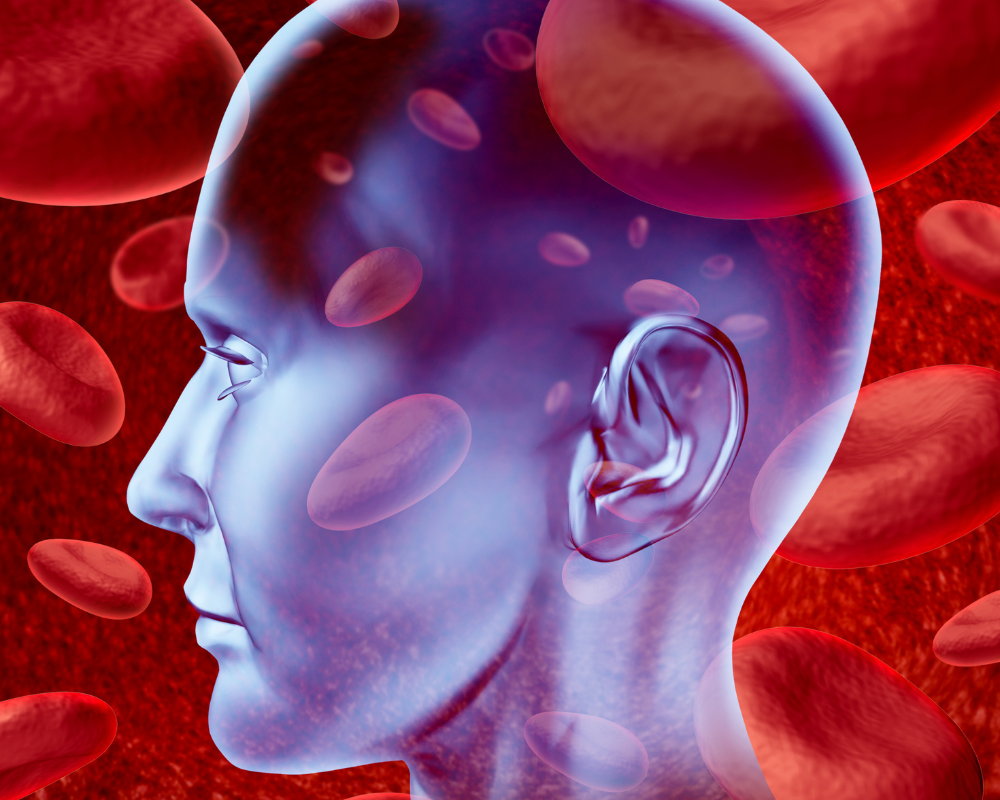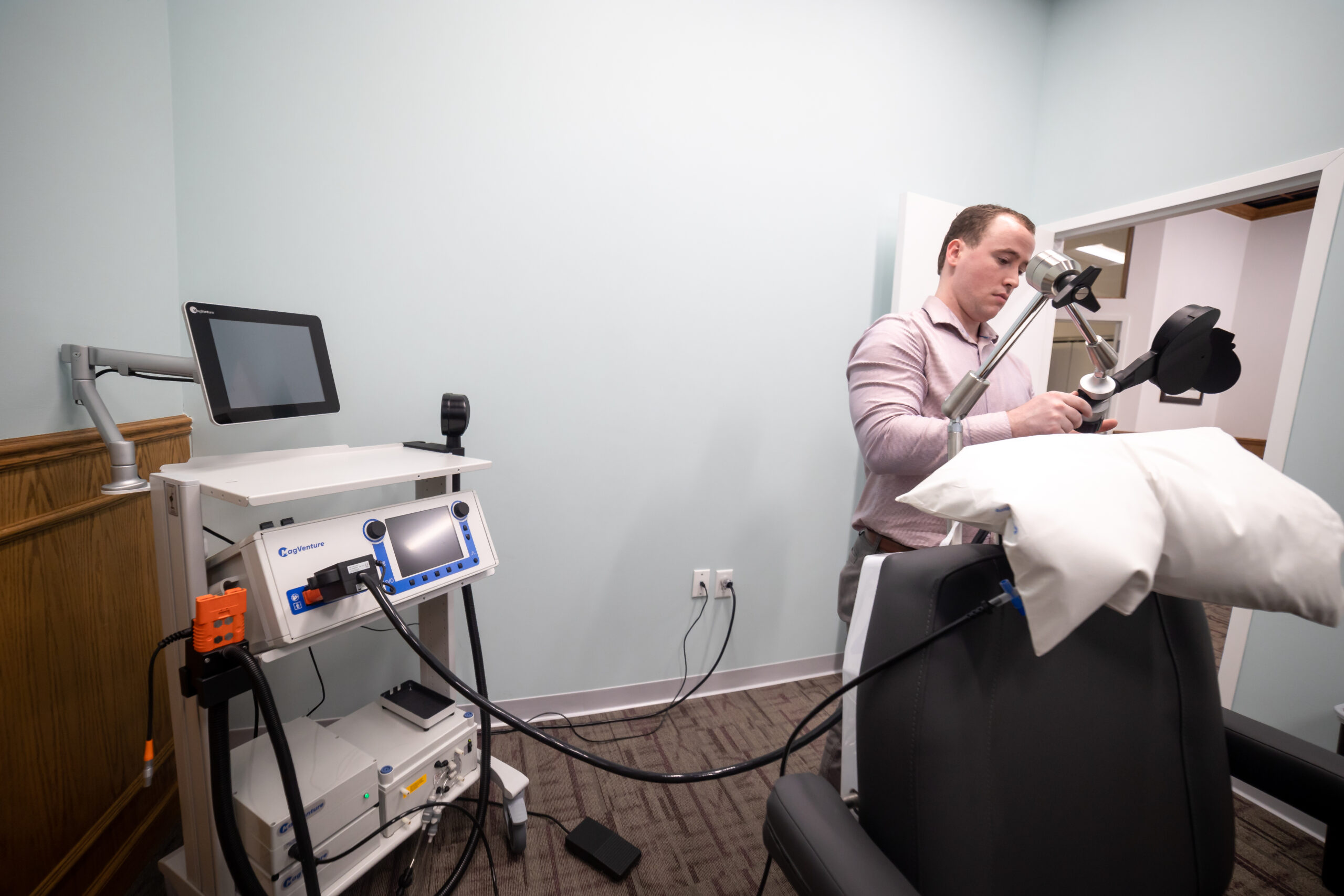Review of Existing Studies
While direct research on the relationship between diet, nutrition, and TMS therapy effectiveness is still emerging, we can glean insights from several related fields. For instance, studies in neuroscience have established that nutrition plays a critical role in brain health and functionality, influencing everything from cognition to mood.
Specific nutrients such as omega-3 fatty acids, B vitamins, and antioxidants have been shown to support brain health. It’s reasonable to hypothesize that a well-nourished brain might respond more positively to TMS therapy.
Several studies in neuroscience have established that nutrition plays a critical role in brain health and functionality, influencing everything from cognition to mood.
Here are some examples:
– A study at Tufts University seeks to examine the effect of eating nutritional supplements and foods, and weight-management on healthy brain function in aging adults.
– The Food for the Brain Foundation approaches brain health rooted in the growing scientific evidence from the study of nutritional psychiatry, neuroscience, and psychology. It encompasses nutrition and lifestyle interventions for supporting brain health and mental well-being, and preventing cognitive decline. The brain needs essential fats, vitamins, minerals, as well as protein and carbohydrate. The brain functions best when it runs on premium fuel.
– A study published in Frontiers in Nutrition explores high-quality fundamental and clinical research across the field of nutrition, psychology, brain, and neurocognitive function in health and disease.
– A new study reveals that nutrient intake, brain structure, and cognitive function jointly contribute to brain health in older adults. The study adds to the evidence that nutrition is a key player in healthy aging.
– Multiple studies have found a correlation between a diet high in refined sugars and impaired brain function, and even a worsening of symptoms of mood disorders, such as depression. Eating high-quality foods that contain lots of vitamins, minerals, and antioxidants nourishes the brain and protects it from oxidative stress.
These studies and others highlight the importance of nutrition in maintaining brain health and functionality, and suggest that a healthy diet can have a positive impact on cognition, mood, and overall well-being.
Theoretical Discussion
Impact of Nutrients on Brain Health: Various nutrients have direct and indirect influences on brain health, which can theoretically impact TMS therapy. For example, Omega-3 fatty acids are known for their role in supporting brain function and reducing inflammation. A diet rich in these nutrients may create a more conducive environment for TMS therapy.
Impact of Nutritional Deficiencies: Nutritional deficiencies can affect the brain’s functionality. For example, low levels of B-vitamins can lead to feelings of fatigue, lethargy, and even depressive symptoms. These conditions might reduce the effectiveness of TMS therapy.
Impact of Diet on Neurotransmitter Production: Certain foods can influence the production of neurotransmitters, which are the brain’s chemical messengers. For instance, tryptophan, found in foods like turkey and eggs, is a precursor to serotonin, a neurotransmitter that contributes to feelings of well-being and happiness. Theoretically, a diet promoting balanced neurotransmitter production might enhance TMS therapy’s effects, which also aim to balance these brain chemicals.
Real-life Anecdotes or Case Studies
While empirical research is still in its early stages, some anecdotal evidence and case studies suggest a link between diet, nutrition, and the effectiveness of TMS therapy. For instance, some patients have reported feeling more energetic and responsive to treatment when they adhered to a balanced, nutrient-rich diet compared to when they followed their usual dietary habits. However, these experiences should be interpreted with caution until more research is conducted.
While the existing research primarily sets the stage for further investigation rather than confirming a definitive relationship, it provides a promising start. As TMS therapy continues to evolve, it’s likely that we’ll gain a deeper understanding of how factors such as diet and nutrition influence its effectiveness.
Maintaining a balanced, nutrient-rich diet is essential for anyone undergoing TMS therapy. Just as proper nutrition can improve overall health, it may also enhance the effectiveness of this treatment. This includes a variety of fruits and vegetables, lean proteins, whole grains, and healthy fats, which provide a wide range of nutrients necessary for optimal brain function.
Specific Nutrients to Focus On
- Omega-3 Fatty Acids: These are known to support brain health and reduce inflammation. They’re abundant in fatty fish like salmon, but can also be found in walnuts, chia seeds, and flaxseeds.
- B-Vitamins: Particularly B6, B9 (folic acid), and B12 play crucial roles in brain health, including the production of neurotransmitters. Foods rich in these nutrients include leafy greens, whole grains, meat, eggs, and dairy.
- Antioxidants: Foods high in antioxidants like berries, dark chocolate, nuts, and vegetables can help combat oxidative stress in the brain, potentially enhancing the effectiveness of TMS therapy.
- Protein-Rich Foods: Proteins supply the amino acids needed to produce neurotransmitters. Include lean meats, dairy, eggs, and plant-based proteins like legumes and quinoa in your diet.
Foods To Avoid
While a balanced diet is key, there are some foods and substances that may negatively impact brain health and the potential effectiveness of TMS therapy.
- Alcohol: Excessive alcohol consumption can lead to neurotoxicity and potentially interfere with the effectiveness of TMS therapy.
- Processed Foods: Foods high in refined sugars and unhealthy fats may lead to inflammation and could potentially dampen the effects of TMS therapy.
- Caffeine: While moderate caffeine intake can have positive cognitive effects, excessive intake may cause issues like sleep disturbance and increased anxiety, which could interfere with TMS therapy.
Diet can affect neurotransmitter levels in the brain through various mechanisms. Here are some ways in which diet can affect neurotransmitter levels in the brain:
– Amino acids: Amino acids are the building blocks of proteins, and some of them can act as neurotransmitters. For example, tryptophan is an amino acid that is used to make serotonin, which is a neurotransmitter that regulates mood, appetite, and sleep. Eating foods that are rich in tryptophan, such as turkey, chicken, fish, and eggs, can increase serotonin levels in the brain.
– Carbohydrates: Carbohydrates can increase the production of insulin, which helps to transport amino acids into the brain. This can increase the availability of tryptophan in the brain, which can lead to an increase in serotonin levels.
– Fasting: Fasting has been shown to have a beneficial effect on the brain. It can increase the production of ketones, which are molecules that can be used by the brain for energy. Ketones have been shown to have a neuroprotective effect and can increase the production of brain-derived neurotrophic factor (BDNF), which is a protein that promotes the growth and survival of neurons.
– Plant-based diet: A plant-based diet has been shown to have a beneficial effect on the brain. It is rich in antioxidants, which can protect the brain from oxidative stress. It is also rich in fiber, which can promote the growth of beneficial gut bacteria. Recent studies have highlighted the role of the intestinal microbiota in the still unclear etiology of RA. This could be a potential target for additional dietary therapy in RA.
Overall, diet can affect neurotransmitter levels in the brain through various mechanisms. Eating a balanced diet that is rich in amino acids, carbohydrates, and antioxidants can help to promote brain health.
Certain types of foods can increase serotonin levels in the brain. Here are some examples:
– Foods that are rich in tryptophan: Tryptophan is an amino acid that is used to make serotonin. Foods that are rich in tryptophan include turkey, chicken, fish, eggs, and cheese.
– Foods that are rich in carbohydrates: Carbohydrates can increase the production of insulin, which helps to transport amino acids into the brain. This can increase the availability of tryptophan in the brain, which can lead to an increase in serotonin levels. Foods that are rich in carbohydrates include bread, pasta, rice, and potatoes.
– Foods that are rich in omega-3 fatty acids: Omega-3 fatty acids are essential fatty acids that are important for brain health. They have been shown to increase the production of serotonin in the brain. Foods that are rich in omega-3 fatty acids include fatty fish (such as salmon, tuna, and sardines), flaxseeds, chia seeds, and walnuts.
Overall, eating a balanced diet that is rich in tryptophan, carbohydrates, and omega-3 fatty acids can help to increase serotonin levels in the brain.
Sources
[1] https://www.semanticscholar.org/paper/6c5bf938964c86648b7955bc7603146d045dcfba
[2] https://pubmed.ncbi.nlm.nih.gov/10710832/
[3] https://www.semanticscholar.org/paper/acd39894edaf9faeb3ef3ded792d3124f5ca303d
[4] https://www.semanticscholar.org/paper/f042ea8923e3d534807e95e0e6a873203dc6e9a7
[6] https://foodforthebrain.org/nutrition-is-so-important-for-your-brain/nutrition-for-brain-health/
[8] https://neurosciencenews.com/nutrition-cognition-brain-aging-23110/
[9] https://www.health.harvard.edu/blog/nutritional-psychiatry-your-brain-on-food-201511168626





